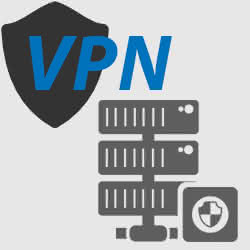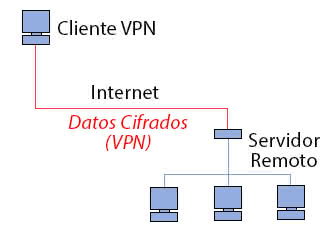What is a VPN?
What is a VPN for?
In this article we will define VPN networks and explain what they consist of without going into great technical details. Knowing
what a VPN is and what it
is
for
is something that can be very useful for both companies and users.

In most websites, they treat VPNs as simple methods to
mask or hide a user's IP when browsing
, but their possibilities extend much further as we will see below.
What is a VPN?
The letters VPN refer to
Virtual Private Network
, which translated into Spanish would be
Virtual Private Network
. A VPN is a technology that allows us to extend a public network in a secure way, so that
we can send and receive data through this public network but with all the privacy and security offered by private networks
.
Security and privacy are two of the most widespread concerns among Internet users and the use of VPN networks is one of the options to try to solve this situation. One of the most common examples is when we use public Wi-Fi networks in which our information can be exposed without our consent.
When we connect a device to a VPN, the connection uses
tunneling
technology to establish a secure and encrypted connection between the two points. Encryption is done through one of the existing secure communication protocols, such as SSH, to maintain the confidentiality of the communication.
The following image shows a simplified scheme of the operation of virtual private networks that can help us better understand what a VPN is and how it works.

What is a VPN for?
VPN networks have many uses and depending on the way in which they are implemented they will have one purpose or another, then we will see some of the most common uses:
-
Hide our IP to navigate anonymously.
When we access the Internet through a VPN, our public IP changes, which can be useful to jump restrictions and navigate with a different IP than the one assigned to us by our internet provider.
-
Skip geographical restrictions of websites or services.
Keep in mind that by changing our IP, you can also change the location, for example, if we are in Spain and the VPN uses an IP from Germany, the public IP that will be used to access the internet will be the IP of Germany. This last data is of special utility to get a free internet and thus be able to skip the possible geographical restrictions imposed by some websites or services. An example of this use that has been present in Spain until recently, was the use of a VPN to access Netflix, a service that has not reached Spain until 2015.
-
Access a network of remote work.
There are many companies that implement VPNs within their structure, to allow workers to access work platforms while traveling or from their own homes. This technology is especially useful for professionals who travel and thus have their own office from anywhere in the world.
-
Access a remote home network.
In the same way that a company can implement a VPN, it can also be done domestically and thus be able to access our home network when we are away from home. Although for access to our personal PC it may be more appropriate to use remote desktop technology, for example
X2GO
if we are on Linux.